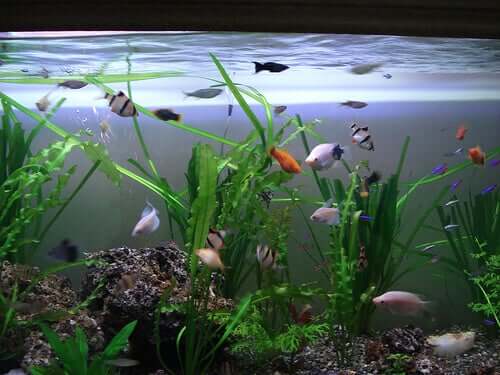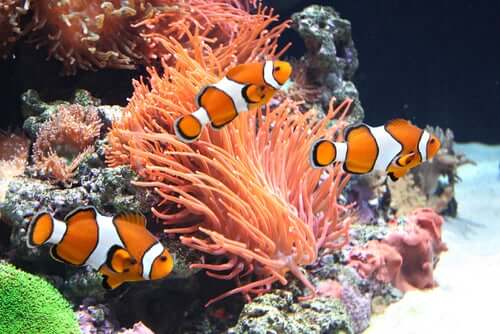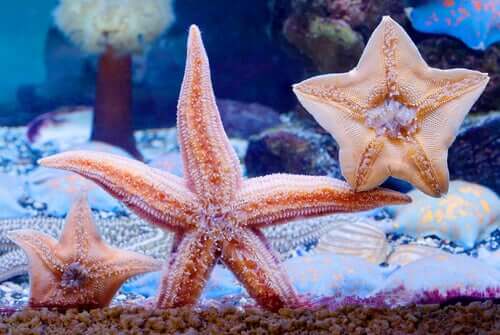How to Choose Plants for Your Aquarium

Some people choose artificial plants for their aquarium because they don’t require any care. However, natural plants have many benefits for your fish, whether in cold or warm water. In this article, we’ll give you some tips on how to choose plants for your aquarium.
The importance of plants for your aquarium
Firstly, it’s important to know that natural plants have a very important function in an aquarium. They provide oxygen and remove carbon dioxide. This means that they’re not just a pretty, decorative feature, but rather something that filters and purifies the water of the waste produced by the fish.

On the market, you can find a large number of both natural and artificial plants for your aquarium. Artificial plants have the advantage of not needing as much care or cleaning. They’re also not going to grow too large and start growing out of the tank!
But, whether in cold or warm water, fish have a very close relationship with plants in natural life. What you place in your aquarium to create their home environment will be what makes your fish feel ‘at home’.
Many small fish species use plants to hide from larger predators and avoid being eaten. They can even hide between the leaves as if it were a game or to attract attention during mating.
Plants for your aquarium: species and location
Since plants play such an important role in a fish’s life, you can’t take this choice lightly. Some plant species are toxic and can release dangerous substances into the water, which can cause disease or even kill your fish.
So, the first step is to consult with an expert at a pet shop about what plants are most suitable for your aquarium. Some of them may be:
1. Hygrophila
2. Vallisneria
3. Echinodorus
4. Microsorum
5. Cryptocoryne
The next step is to choose the right plants and the correct amounts for your aquarium, as loading up the space too much will stop your fish from developing properly.
Another important factor to take into account is the climate within the aquarium. Whether the water is tropical, cold, fresh, or salty will determine what plant species you should put in it. Some plant species also require more light whilst others are more suited to darker environments.
‘Landscaping’ is also something to consider when choosing plants for your aquarium. What do you want it to look like? However, you mustn’t forget the number of fish – too many leaves could obstruct their movements or cause fights between them.
Setting up your new plants
Once you’ve chosen your plants and decided how you want to decorate your aquarium, it’s time to plant, just as you would in the garden.

Before you put them in the water, we recommend that you rinse them a little to remove any dirt or substances that could be bad for your fish’s health. It never hurts to check and make sure that you don’t introduce any insects or unwelcome bacteria into the water.
Whilst you’re planting, you should decant your fish into a smaller aquarium. This will make the task a lot easier and less stressful. To fix the routes, it’s a good idea to have a layer of sand approximately eight centimeters deep to stop them from rising with the movement of the water. Also, make sure that larger leaves don’t protrude outside of the tank.
One by one, return your fish to their habitat and pay close attention to how they interact with their new environment. They might seem a little scared at first and keep their distance, but over the coming days, they will get used to them. Keep an eye on things over the coming weeks as the plants acclimatize and, in no time, you’ll have a beautifully-decorated, yet functional, aquarium!
Main image source: Hugo A. Quintero G.